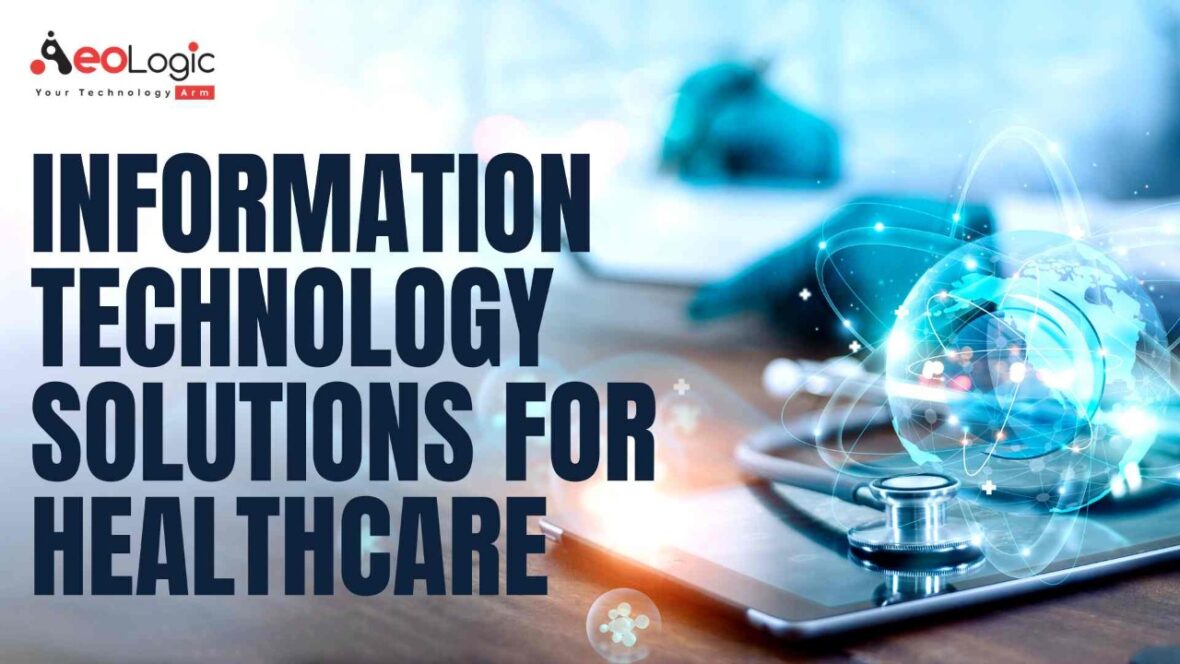The pandemic undeniably is accelerating technological advancement. And adoption in healthcare as well. It’s now easier and faster for patients in procuring medical services outside of the traditional four walls of the medical establishment. Information Technology solutions for healthcare are enhancing convenience and accessibility for all.
Telehealth is also making it possible for patients in receiving care without an in-person office visit. Additionally, remote patient monitoring is becoming more widely accepted. Having exponentially increased in popularity throughout the pandemic. This now consists of wearable technology with impressive capabilities. From remote monitoring of parameters to remote echocardiograms. If not for the pandemic, it possibly would have taken the healthcare industry another 10 years to reach where it is today.
Also read: Use of Information Technology in Social Security Schemes
Information Technology Solutions for healthcare
Improving patient care and experiences
Information Technology solutions for healthcare is using technology for measuring and capturing data across the whole system of patient care. Therefore, giving health organizations a big-picture view of how they’re performing. Furthermore, technology is also helping in automating that measurement so organizations can continuously review their results. Hence spotting issues that require to be fixed, and find ways to improve care and the patient experience.
Real-time information exchange
From clinicians to patients to payers, several different groups need to be able to avail health records for different reasons. Conventionally, organizations were maintaining different records for each group. So, more organizations are integrating their data so that authorized people can access the records they need at the time.
Flexibility for patients and clinicians
Mostly, patients are busy, and finding time for appointments can be a struggle. Telemedicine technology and patient portals are providing more ways for people in communicating with health professionals. Wearable technology, such as heart monitors, also provides clinicians with more ways to evaluate the well-being of their patients. As well as providing them with more options in recording and evaluating symptoms as patients go about their lives.
AI technology in healthcare
Another Information Technology solutions for healthcare is incorporating artificial intelligence. It is focusing on clinical decision support. And it helps in identifying useful insights from large collections of data. Healthcare organizations have collected so much data that it would be impossible to analyze it without using AI. AI-enabled tools can examine the large and complex data sets generated from electronic records, images, notes, sensors, and devices. It helps in finding trends that could improve patient care. As well as helping researchers in developing better treatments for medical conditions. Although AI technology is still new, many use cases could benefit organizations across the healthcare industry.
Blockchain in healthcare
Blockchain technology in the healthcare industry provides a user-centered approach for health information to be securely collected, verified, and shared. Most blockchain systems are providing a transparent, distributed ledger of records that cannot be altered without the changes being recorded. While also providing full transparency and interoperability across diverse, distributed and highly segmented healthcare systems.
Cloud computing in healthcare
When most people hear of cloud technology, they think of the cloud as a system to store data. However, cloud environments do more than passive data storage. Cloud environments are offering methods for healthcare organizations to build and customize applications. This can automate how data moves through their information technology systems. Hybrid cloud environments specifically, provide security features that can help organizations maintain compliance with HIPAA and other regulations. All while providing them the flexibility. This flexibility is also providing healthcare providers with more options for updating existing legacy systems and workflows. Cloud adoption is opening up opportunities for organizations to implement AI and machine learning tools too. Therefore, it can help in uncovering hidden patterns and insights. hence improving the way of delivering care.
Also read: Role of Information Technology in Industry 4.0
Transparency Into the Medical Life Cycle
Technological developments and adoption will aid in increasing transparency into every step of the medical life cycle for patients. For years, the constant lack of transparency into specific services and costs was causing massive challenges and misunderstandings. Information Technology solutions for healthcare are bridging this gap. Therefore, offering patients with straightforward access to critical details and information from anywhere.
Further, it’s significant that this information is given to patients in a way that is accessible to everyone. Including those who are underinsured, undereducated, and the elderly. A much-required step in helping in increasing access to quality healthcare for all, increasing transparency into the medical life cycle is key.
Conclusion
Looking forward, the healthcare industry must remain focused on one common goal. Which is ensuring that everyone, no matter their circumstances, has access to high-quality and highly affordable care. IT solution for healthcare is making the industry even more powerful by increasing mobility.
Reach out to us at support@aeologic.com to initiate a conversation followed by a plan for action!
FAQs
How information technology is helping the healthcare sector?
Information technology in healthcare is improving patient safety, healthcare delivery, and interaction between healthcare providers and patients. One of the most notable applications of HIT is data management and patient records.
What are the advantages of health informatics in healthcare?
It is catering to identifying the latest trends in the medical sector that can be applied to various health conditions and improving care processes for patients. It is also assisting in improving quality patient care by providing accurate information from patients’ data to lessen errors in care delivery.
Related Blogs –
- The Importance of Information Technology in Business Today
- Role of Information Technology in Business Environment
- Role of Information Technology in Knowledge Management System
- The Important of Information Technology in Port Terminal Operations
- Importance of Information Technology in Today’s World
- Information Technology Solutions for Healthcare
- The Role of IT in Supply Chain Management






